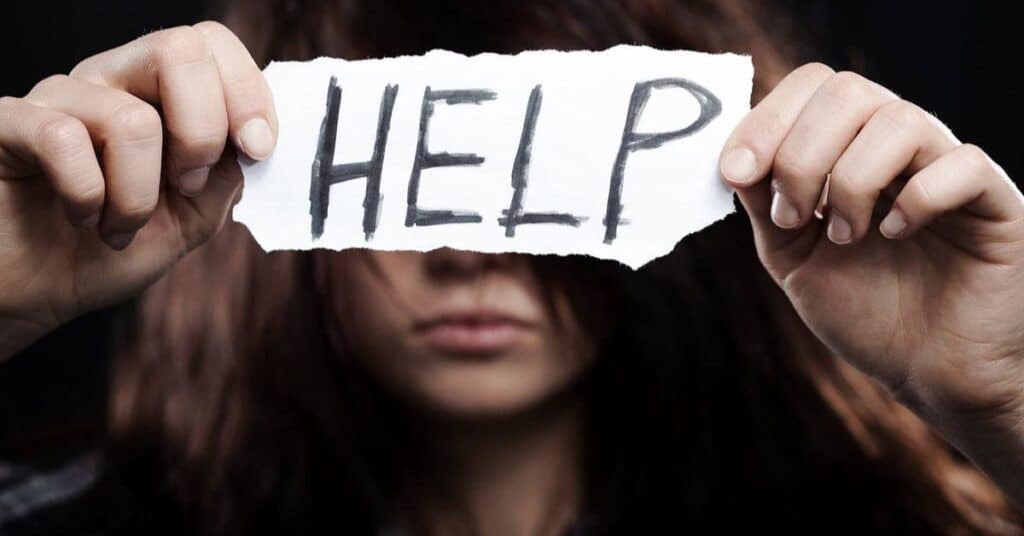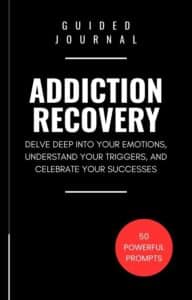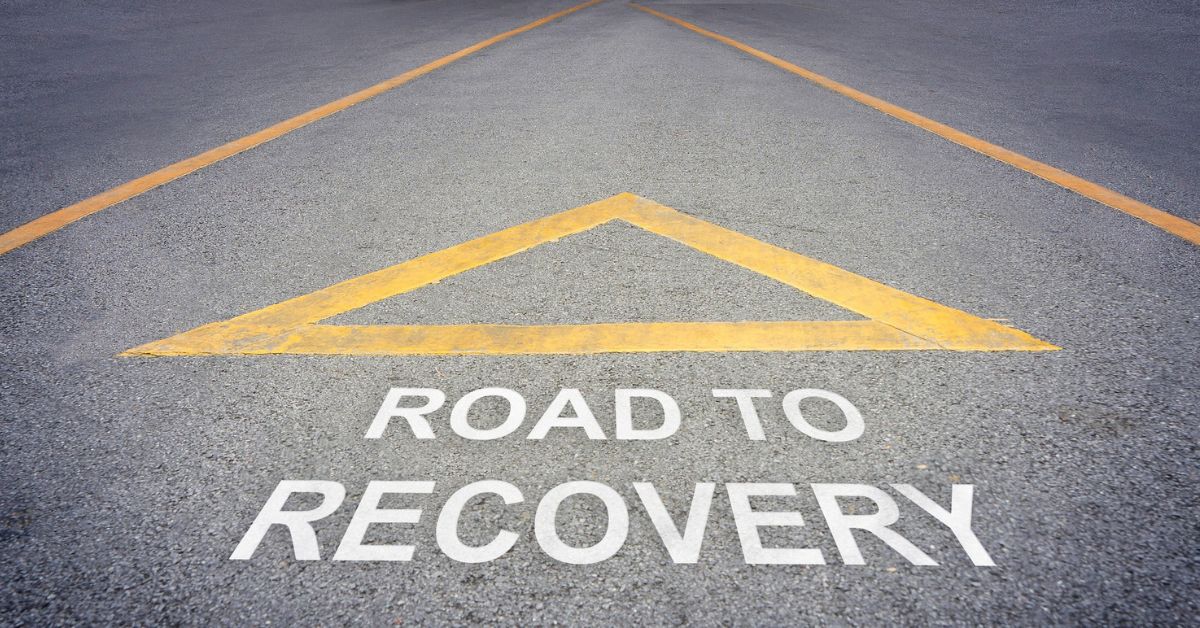Embarking on a journey of addiction recovery is a courageous and transformative step. Recovery is not just about quitting an addictive behavior; it’s about rediscovering yourself, rebuilding your life, and finding new ways to cope with challenges. Journal prompts can be an invaluable tool in this process, providing a safe space for you to reflect, set goals, and track your progress.
This set of 50 journal prompts is designed to support you through various stages of your recovery journey. Each prompt encourages self-reflection, helping you understand your emotions, triggers, and the underlying reasons behind your addiction. By writing about your experiences, you can gain insights into your behaviors and develop strategies to manage them better.
The prompts also focus on goal-setting, both short-term and long-term, to keep you motivated and on track. They encourage you to express gratitude, practice positivity, and explore new ways to take care of yourself. Additionally, these prompts emphasize the importance of building a strong support network and improving your relationships.
Whether you’re just starting your recovery journey or have been on this path for a while, these prompts can help you stay focused, celebrate your achievements, and navigate the ups and downs of recovery. Use these prompts as a companion to document your thoughts, feelings, and progress, and to remind yourself of your strength and resilience.
Understanding Addiction Recovery
What is Addiction Recovery?
Addiction recovery is the process of overcoming dependence on a substance or behavior that has taken control of one’s life. This process involves stopping the addictive behavior, addressing the underlying causes of the addiction, and making positive changes to live a healthier and more fulfilling life.
Definition of Addiction
Addiction is a chronic condition characterized by the compulsive use of a substance (like drugs or alcohol) or engagement in a behavior (like gambling or internet use), despite harmful consequences. It often leads to significant disruptions in daily life, affecting relationships, work, and health.
What Does Recovery Mean?
Recovery means regaining control over your life. It’s about breaking free from the cycle of addiction and making changes that support a healthier, happier existence. Recovery is a personal journey that looks different for everyone, but it generally involves:
- Stopping the Addictive Behavior: The first step is to stop using the substance or engaging in the behavior causing harm.
- Addressing Underlying Issues: This involves understanding and dealing with the emotional, psychological, or social factors that led to the addiction.
- Building a Support System: Recovery often requires the help of friends, family, or support groups who can offer encouragement and accountability.
- Developing New Habits: Forming new, healthy habits can replace the old, harmful ones and support long-term recovery.
Stages of Addiction Recovery
Recovery is typically a gradual process that happens in stages. These stages can help individuals understand where they are in their journey and what steps they need to take next.
- Acknowledging the Problem
The first stage involves recognizing that there is a problem. This can be one of the hardest steps, as it requires admitting that the addiction is real and that it is negatively affecting one’s life.
Example:
John has been drinking heavily for years. After missing an important family event due to being drunk, he realizes that his drinking is out of control and is hurting his relationships.
- Preparing for Change
Once the problem is acknowledged, the next step is preparing to make a change. This might involve seeking information about addiction and recovery, talking to loved ones, or finding a support group or therapist.
Example:
Maria has been gambling excessively and has accumulated significant debt. She starts researching local support groups and reaches out to a friend for help.
- Taking Action
In this stage, the individual begins to take concrete steps toward recovery. This could mean detoxing from the substance, attending therapy sessions, or joining a rehabilitation program.
Example:
Carlos decides to enter a rehab facility to help him stop using drugs. He starts attending therapy sessions to understand the root causes of his addiction.
- Maintaining Recovery
Maintaining recovery involves continuing to make healthy choices and avoiding triggers that could lead to relapse. This stage is ongoing and requires constant effort and vigilance.
Example:
Sara has been sober for six months. She regularly attends support group meetings, practices mindfulness to manage stress, and avoids places where she used to drink.
- Building a New Life
The final stage is about building a new life that supports sobriety and well-being. This can include finding new hobbies, rebuilding relationships, and setting new life goals.
Example:
After a year of sobriety, Liam takes up painting, starts a new job, and reconnects with his family, creating a fulfilling and addiction-free life.
The Role of Support in Recovery
Support from others is crucial in addiction recovery. This support can come from different sources, including:
- Family and Friends: Loved ones can provide emotional support, encouragement, and help in practical ways.
- Support Groups: Groups like Alcoholics Anonymous (AA) or Narcotics Anonymous (NA) offer a community of people who understand what you’re going through.
- Therapists and Counselors: Professionals can provide strategies for coping with cravings, managing stress, and dealing with underlying issues.
Example:
Jane’s family attends family therapy sessions with her to better understand her addiction and learn how they can support her recovery.
Coping with Relapse
Relapse, or returning to addictive behavior after a period of sobriety, can happen. It’s important to understand that relapse is not a failure but a part of the recovery process. What matters is how you respond to a relapse.
Steps to Take After a Relapse:
- Acknowledge the Relapse: Accept that it has happened without self-judgment.
- Seek Support: Reach out to your support network or therapist for help.
- Identify Triggers: Understand what led to the relapse and develop strategies to avoid those triggers in the future.
- Recommit to Recovery: Renew your commitment to sobriety and continue working towards your goals.
Example:
After a stressful week, Alex drank alcohol again. He immediately contacted his sponsor, attended an AA meeting, and discussed his triggers with his therapist to get back on track.
Addiction recovery is a challenging but rewarding journey. It involves recognizing the problem, preparing for and taking action, and continuously working to maintain and build a healthier life. Support from loved ones, support groups, and professionals plays a crucial role in this process. Remember, recovery is not a straight path, and setbacks can happen. What’s important is to keep moving forward, learning from experiences, and staying committed to a better, addiction-free life. You have the strength and resilience to overcome addiction and create the life you want.

The Power of Journaling in Addiction Recovery
What is Journaling?
Journaling is the practice of writing down your thoughts, feelings, and experiences regularly. It can be done in a notebook, a diary, or even digitally on a computer or phone. Journaling is a personal and private activity where you express yourself freely without worrying about judgment or criticism. It’s a way to reflect on your life, understand your emotions, and make sense of your experiences.
How Journaling Helps in Addiction Recovery
Journaling can be a powerful tool in your addiction recovery journey. It offers numerous benefits that can support you in overcoming addiction and building a healthier, more fulfilling life.
Self-Reflection and Awareness
Journaling helps you reflect on your thoughts and behaviors. By writing down your experiences, you can gain insights into the patterns that contribute to your addiction. This self-awareness is crucial for making positive changes.
Example:
When you write about your day and notice that stress at work often leads you to crave alcohol, you can start to develop strategies to manage that stress without turning to drinking.
Emotional Expression
Addiction often involves suppressing or avoiding difficult emotions. Journaling provides a safe space to express and explore these feelings. By writing about your emotions, you can process them in a healthy way.
Example:
If you’re feeling anxious or sad, writing about these emotions can help you understand them better and find ways to cope without resorting to addictive behaviors.
Tracking Progress
Keeping a journal allows you to track your progress over time. You can see how far you’ve come, celebrate your achievements, and identify areas where you still need to work. This can be incredibly motivating and encouraging.
Example:
Looking back at journal entries from a month ago, you might notice that you’ve reduced your cravings or handled a stressful situation without using substances. This progress can boost your confidence and commitment to recovery.
Goal Setting and Accountability
Journaling helps you set and clarify your recovery goals. Writing down your goals makes them more concrete and gives you a roadmap to follow. It also holds you accountable, as you can regularly check in on your progress.
Example:
You might set a goal to attend a support group meeting every week. By writing this goal in your journal, you can track your attendance and reflect on how these meetings are helping you.
Reducing Stress
Writing in a journal can be a relaxing and stress-relieving activity. It allows you to release pent-up emotions and thoughts, which can reduce overall stress and anxiety. Lower stress levels can help prevent relapse and support your recovery.
Example:
After a long, stressful day, taking 10 minutes to write in your journal can help you unwind and clear your mind, making it easier to avoid the temptation to use substances.
Building Healthy Habits
Journaling encourages the development of new, healthy habits. By regularly setting aside time to write, you create a positive routine that supports your overall well-being.
Example:
Incorporating journaling into your daily routine can become a healthy habit that replaces time you might have spent engaging in addictive behaviors.
How to Start Journaling for Addiction Recovery
Starting a journaling practice is simple and doesn’t require any special skills. Here are some tips to help you get started:
- Choose Your Medium
Decide whether you prefer writing by hand in a notebook or typing on a digital device. Choose the method that feels most comfortable and convenient for you. - Set Aside Regular Time
Try to journal at the same time each day, whether it’s in the morning, during a lunch break, or before bed. Consistency helps make journaling a habit. - Find a Quiet Space
Choose a quiet, comfortable place where you can write without distractions. This helps you focus and get in touch with your thoughts and feelings. - Be Honest and Open
Write honestly about your experiences, emotions, and thoughts. Your journal is a private space where you can express yourself freely. - Use Prompts if Needed
If you’re not sure what to write about, use journal prompts. These are questions or statements designed to inspire reflection and writing.
Example Prompts:
- How am I feeling today?
- What are three things I’m grateful for?
- What challenges did I face today, and how did I handle them?
- What goals do I have for my recovery this week?
Journaling is a powerful and transformative tool for addiction recovery. It helps you gain self-awareness, express emotions, track progress, set goals, reduce stress, and build healthy habits. By making journaling a regular part of your recovery journey, you can gain valuable insights and support your efforts to overcome addiction. Start today, and let your journal be a companion and guide on your path to a healthier, addiction-free life.

Journal Writing Prompts for Addiction Recovery
Download Printable Journal Prompts (PDF) >>
- How am I feeling today?
- What emotions am I experiencing right now?
- What triggered these feelings?
- Describe a moment when you felt tempted. How did you handle it?
- What are some past successes in my recovery journey?
- What lessons have I learned from previous setbacks?
- What situations or emotions trigger my urge to use?
- How can I avoid or manage these triggers?
- What are my goals for this week?
- What small steps can I take today to move closer to my recovery goals?
- Where do I see myself in six months?
- What are my aspirations beyond recovery?
- List three things I am grateful for today.
- Who in my life am I thankful for, and why?
- Write down five positive affirmations for myself.
- How can I remind myself of my strengths and achievements?
- What are some healthy ways I can cope with stress?
- Who can I reach out to when I need support?
- Describe a mindfulness technique that helps me relax.
- How can I incorporate mindfulness into my daily routine?
- Who are the people supporting me in my recovery journey?
- How can I strengthen my relationships with my support network?
- What do I need to communicate to my loved ones about my recovery?
- How can I improve my communication skills?
- What progress have I made in the past month?
- How has my mindset changed since I started my recovery journey?
- What challenges have I overcome recently?
- How did I feel after overcoming these challenges?
- What new hobbies or interests have I discovered during my recovery?
- How have my values and priorities changed?
- What kind of person do I want to become?
- How can I continue to grow and improve myself?
- Write about a time when I felt particularly proud of myself.
- How do I deal with negative emotions?
- How can I be kinder to myself during difficult times?
- What are some self-care practices that help me feel better?
- What motivates me to stay on this recovery journey?
- What are my top three strengths?
- How can I leverage my strengths to support my recovery?
- Describe a time when I successfully resisted a temptation.
- How did I feel after overcoming a temptation?
- What are the benefits I’ve noticed since starting my recovery?
- What future goals do I want to set for myself?
- How can I create a balanced and healthy lifestyle?
- Who are my role models in recovery, and why?
- What steps can I take to rebuild trust with loved ones?
- What activities or practices bring me joy and peace?
- How can I celebrate my milestones and achievements?
- What does a fulfilling life look like to me?
- What steps can I take today to move closer to my ideal life?
These prompts aim to guide you through self-reflection, goal-setting, and emotional exploration, fostering a positive and proactive mindset in your recovery journey.
Guided Journal for Addiction Recovery
50 Writing Prompts to Delve Deep Into Your Emotions, Understand Your Triggers, and Celebrate Your Successes

Your Companion on the Journey to a Healthier, Happier Life
Embarking on the path of addiction recovery is a brave and transformative journey. The Guided Journal for Addiction Recovery is designed to support and inspire you every step of the way. This journal is more than just a book—it’s a trusted companion that helps you navigate the ups and downs of recovery with clarity, purpose, and resilience.
Why Choose the Guided Journal for Addiction Recovery?
Addiction recovery requires more than just willpower; it demands self-reflection, goal-setting, and the development of new, healthier habits. Our guided journal is meticulously crafted to help you achieve all these and more. With carefully curated prompts, it encourages you to delve deep into your emotions, understand your triggers, and celebrate your successes. Here’s how this journal can transform your recovery journey:
1. Daily Self-Reflection and Emotional Awareness
Recovery is a daily effort, and our journal prompts are designed to help you check in with yourself regularly. By asking questions like, “How am I feeling today?” and “What emotions am I experiencing right now?” you can better understand your emotional landscape and recognize patterns that influence your behavior.
2. Identifying and Managing Triggers
Understanding what triggers your urge to use is crucial for long-term recovery. With prompts such as, “What situations or emotions trigger my urge to use?” and “How can I avoid or manage these triggers?” you can develop strategies to stay in control and avoid relapse.
3. Setting and Achieving Goals
Setting goals keeps you focused and motivated. The journal includes prompts like, “What are my goals for this week?” and “What small steps can I take today to move closer to my recovery goals?” to help you break down your aspirations into manageable, actionable steps.
4. Building a Supportive Network
Recovery is not a journey you have to take alone. The journal prompts you to consider, “Who are the people supporting me in my recovery journey?” and “How can I strengthen my relationships with my support network?” so you can lean on and build a strong, supportive community.
5. Cultivating Gratitude and Positivity
Focusing on the positive aspects of your life can be incredibly empowering. With prompts like, “List three things I am grateful for today,” and “Who in my life am I thankful for, and why?” you can shift your mindset to one of gratitude and positivity, which is essential for lasting recovery.
6. Celebrating Progress and Milestones
Recovery is a series of small victories. By regularly reflecting on prompts such as, “What progress have I made in the past month?” and “How has my mindset changed since I started my recovery journey?” you can celebrate your achievements and stay motivated.
7. Developing Healthy Coping Mechanisms
Finding healthy ways to cope with stress and emotions is key to overcoming addiction. The journal includes prompts like, “What are some healthy ways I can cope with stress?” and “Describe a mindfulness technique that helps me relax,” to help you discover and develop effective coping strategies.
8. Encouraging Personal Growth
Recovery is also about becoming the person you want to be. With prompts such as, “What kind of person do I want to become?” and “How can I continue to grow and improve myself?” you can explore your aspirations and work towards personal development.
The Guided Journal for Addiction Recovery is more than just a book—it’s a tool to empower you on your journey to a healthier, happier life. By engaging with these prompts, you can gain deeper insights into your experiences, build a supportive network, set and achieve meaningful goals, and develop healthy habits that support long-term recovery. Start your journey today and let this guided journal be your companion and guide towards lasting transformation and well-being.
Recovery is a journey filled with challenges, but also with opportunities for growth and self-discovery. By regularly engaging with these journal prompts, you give yourself the chance to reflect deeply on your experiences, set meaningful goals, and celebrate your progress.
The act of writing can be therapeutic, helping you process your emotions and gain clarity about your recovery journey. It can also serve as a reminder of your commitment to yourself and your well-being. Remember, recovery is not a linear path; there will be setbacks and obstacles. But with each entry in your journal, you are taking a step forward, reinforcing your determination, and building a foundation for a healthier, more fulfilling life.
Use these guided journal prompts as a tool to support you through the highs and lows of recovery. Reflect on your past experiences, plan for your future, and most importantly, be kind to yourself along the way. You are not alone in this journey, and every small step you take brings you closer to a brighter, addiction-free future.
Keep writing, keep reflecting, and keep moving forward. Your journey is unique, and every word you write is a testament to your strength and resilience.

